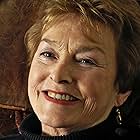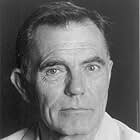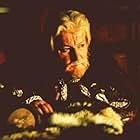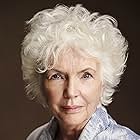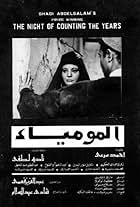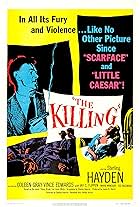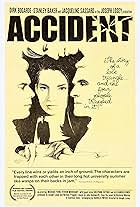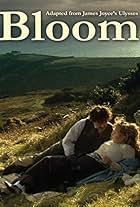James Joyce's masterpiece incarnated: The story of two seperated Dublin wanderers, Leopold Bloom and Stephen Dedalus, struggling to control their personal lives.James Joyce's masterpiece incarnated: The story of two seperated Dublin wanderers, Leopold Bloom and Stephen Dedalus, struggling to control their personal lives.James Joyce's masterpiece incarnated: The story of two seperated Dublin wanderers, Leopold Bloom and Stephen Dedalus, struggling to control their personal lives.
- Nominated for 1 Oscar
- 1 win & 7 nominations total
Fionnula Flanagan
- Gerty MacDowell
- (as Fionnuala Flanagan)
Desmond Perry
- Bantam Lyons
- (as Des Perry)
- Director
- Writers
- All cast & crew
- Production, box office & more at IMDbPro
Storyline
Did you know
- TriviaThe film attracted controversy on its original release due to an early use of the word "fuck."
- Quotes
Buck Mulligan: Thus spake Zarathustra!
- Alternate versionsThe "Original Cut" has a 6-minute black-screen-with-music-only introduction, which seems to act as an overture.
- ConnectionsFeatured in Twisted Sex Vol. 16 (1996)
Featured review
I saw this film, the adaptation of James Joyce's most famous novel which is one of the most important and complex works of the 20th century literature, in the early 90s. The Videotape was on the shelf in the local library where I worked at the time. When I saw the title, I could not believe my eyes, and said to myself: "This just can't happen because it is impossible." But I held in my hands the evidence to the fact that the epitome of the unfilmable book had indeed been adapted to the screen. Even before I started watching, I was fascinated with audacity of the film's creators who were not afraid to aim a blow at the most famous literary "stream of consciousness" of the 20th century. The film left many parts of the books out and could not capture the whole realm of book's richness, it would be impossible, but the attempt still made me feel respect and appreciation to the film director/co-writer Joseph Strick and everyone involved for making an interesting and entertaining motion picture from the incredibly complex, versatile, polyphonic novel which is filled with the dizzying flight of thought, for which there is no limit in either space or time.
What "Ulysses"- the film did right, it is certainly a cinematic portrait of Dublin, James Joyce's city that lives, sounds and moves during a single day, known in literature as Bloomsday, June 16, 1904. Joyce once wrote that he wanted to describe Dublin in in such way that even in hundred years if the city disappears from the face of the earth, it could be restored based on the novel "Ulysses". Now, in addition to the Joyce's prose, there is a movie portrait of Joyce's Dublin carefully reproduced with its streets, avenues, harbor, docks, quays, pubs, the "red lights" district, cathedrals, cemetery, etc.
I was very impressed by Milo O 'Shea in the role of Leopold Bloom. That's how I always imagined Bloom's appearance, body language, behavior, the whole persona.
The best and most memorable are last two scenes of the film; a long surreal "Circe" depicting Bloom's and Stephen Daedalus visit to a brothel, and of course, the culmination of the film and the novel, 'Penelope'. Molly Bloom, (Barbara Jefford) , caught on a thin line between waking and dreaming just the moments before she falls asleep, thinks about very intimate events in her life, recent and long gone. She reminisces about her and Bloom's present and past and finally falls asleep with the most beautiful and life affirming thoughts ever captured in English language: "...I was a Flower of the mountain yes when I put the rose in my hair like the Andalusian girls used or shall I wear a red yes and how he kissed me under the Moorish wall and I thought well as well him as another and then I asked him with my eyes to ask again yes and then he asked me would I yes to say yes my mountain flower and first I put my arms around him yes and drew him down to me so he could feel my breasts all perfume yes and his heart was going like mad and yes I said yes I will Yes." Molly's inner monologue takes almost 30 minutes in the film but it is rich, playful, feminine, wave-like spiral and soothing. It is so beautiful, and Jefford made it her own yet relating to any viewer regardless of gender that I could listen to it again and again.
In my opinion, "Ulysses" (1967) adapted by Joseph Strick is interesting, even if not completely successful film experiment, which was awarded the Oscar nomination for adapted screenplay. Incidentally, I have quite a seditious idea that "Ulysses" has been successfully transferred to the screen and the film has turned out amazingly captivating, entertaining and profound. He has another title and is the adaptation of another work of literature. I mean the posthumous Stanley Kubrick's film, his swan song "Eyes Wide Shut." But this is a topic for another review.
What "Ulysses"- the film did right, it is certainly a cinematic portrait of Dublin, James Joyce's city that lives, sounds and moves during a single day, known in literature as Bloomsday, June 16, 1904. Joyce once wrote that he wanted to describe Dublin in in such way that even in hundred years if the city disappears from the face of the earth, it could be restored based on the novel "Ulysses". Now, in addition to the Joyce's prose, there is a movie portrait of Joyce's Dublin carefully reproduced with its streets, avenues, harbor, docks, quays, pubs, the "red lights" district, cathedrals, cemetery, etc.
I was very impressed by Milo O 'Shea in the role of Leopold Bloom. That's how I always imagined Bloom's appearance, body language, behavior, the whole persona.
The best and most memorable are last two scenes of the film; a long surreal "Circe" depicting Bloom's and Stephen Daedalus visit to a brothel, and of course, the culmination of the film and the novel, 'Penelope'. Molly Bloom, (Barbara Jefford) , caught on a thin line between waking and dreaming just the moments before she falls asleep, thinks about very intimate events in her life, recent and long gone. She reminisces about her and Bloom's present and past and finally falls asleep with the most beautiful and life affirming thoughts ever captured in English language: "...I was a Flower of the mountain yes when I put the rose in my hair like the Andalusian girls used or shall I wear a red yes and how he kissed me under the Moorish wall and I thought well as well him as another and then I asked him with my eyes to ask again yes and then he asked me would I yes to say yes my mountain flower and first I put my arms around him yes and drew him down to me so he could feel my breasts all perfume yes and his heart was going like mad and yes I said yes I will Yes." Molly's inner monologue takes almost 30 minutes in the film but it is rich, playful, feminine, wave-like spiral and soothing. It is so beautiful, and Jefford made it her own yet relating to any viewer regardless of gender that I could listen to it again and again.
In my opinion, "Ulysses" (1967) adapted by Joseph Strick is interesting, even if not completely successful film experiment, which was awarded the Oscar nomination for adapted screenplay. Incidentally, I have quite a seditious idea that "Ulysses" has been successfully transferred to the screen and the film has turned out amazingly captivating, entertaining and profound. He has another title and is the adaptation of another work of literature. I mean the posthumous Stanley Kubrick's film, his swan song "Eyes Wide Shut." But this is a topic for another review.
- Galina_movie_fan
- Apr 10, 2012
- Permalink
- How long is Ulysses?Powered by Alexa
Details
- Runtime2 hours 3 minutes
- Color
- Sound mix
- Aspect ratio
- 2.35 : 1
Contribute to this page
Suggest an edit or add missing content







